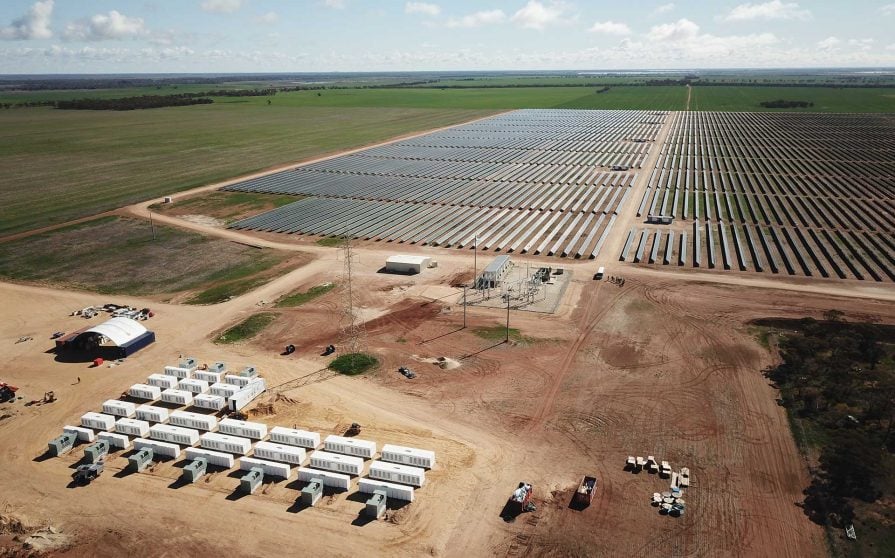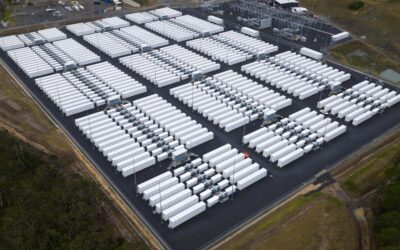
Victoria, Australia, achieved a new battery energy storage system (BESS) discharge and charge record over the weekend, with 693.5MW and -704.8MW, respectively.
Geoff Eldridge, National Electricity Market (NEM) and energy transition observer at consultancy Global Power Energy, took to LinkedIn to signal that the two records were achieved at 17:40 on 31 May for discharging and 13:05 on 2 June for charging.
For the discharging record, Eldridge noted that it surpassed the previous record by 76.99MW, which was achieved at 18:00 on 15 May 2025 with 616.5MW.
Prior to this, the state record was 409MW at 19:00 on 26 October, representing a 69.7% increase.
Try Premium for just $1
- Full premium access for the first month at only $1
- Converts to an annual rate after 30 days unless cancelled
- Cancel anytime during the trial period
Premium Benefits
- Expert industry analysis and interviews
- Digital access to PV Tech Power journal
- Exclusive event discounts
Or get the full Premium subscription right away
Or continue reading this article for free
Victoria’s BESS charging record was broken twice over the weekend. Initially, Victoria set a new record with a minimum instantaneous charge of -612.0MW. However, this was surpassed just 24 hours later, with a -704.8MW record posted at 13:05 on 2 June, a 15.2% increase on the previous day’s record.
The record stood at -424MW a year ago, achieved at 12:55 on 5 May 2024, 66.2% below the new record.
Victoria becomes the latest state to achieve records in relation to its BESS fleet. In April, Energy-Storage.news reported that Queensland had bagged a maximum instantaneous BESS discharge record of 474.1MW at 17:55 on 30 March.
Soon after, the NEM, which covers New South Wales, Queensland, Victoria, South Australia, the Australian Capital Territory and Tasmania, achieved a new BESS charge record with –1,067MW on 2 April.
Eldridge said the records occurred during moderate one-hour price spreads, around AU$180/MWh (US$116/MWh), and reflect how energy storage is “routinely being deployed to manage arbitrage and firm supply.”
Despite these records, Eldridge added that renewable energy curtailment was prevalent during daylight hours across Victoria. As such, this is evidence that there is “more room for responsive load or coordinated scheduling,” Eldrige said.





